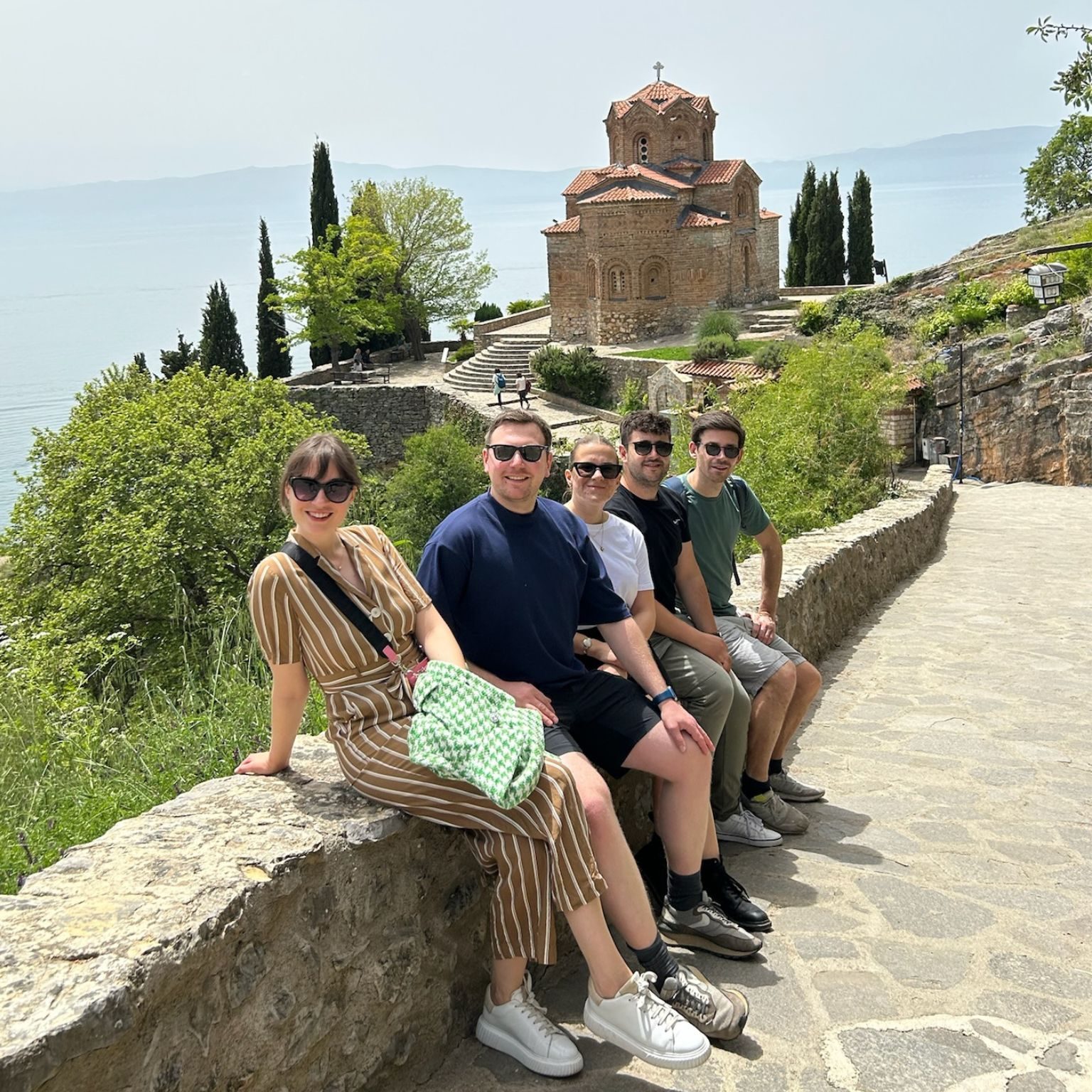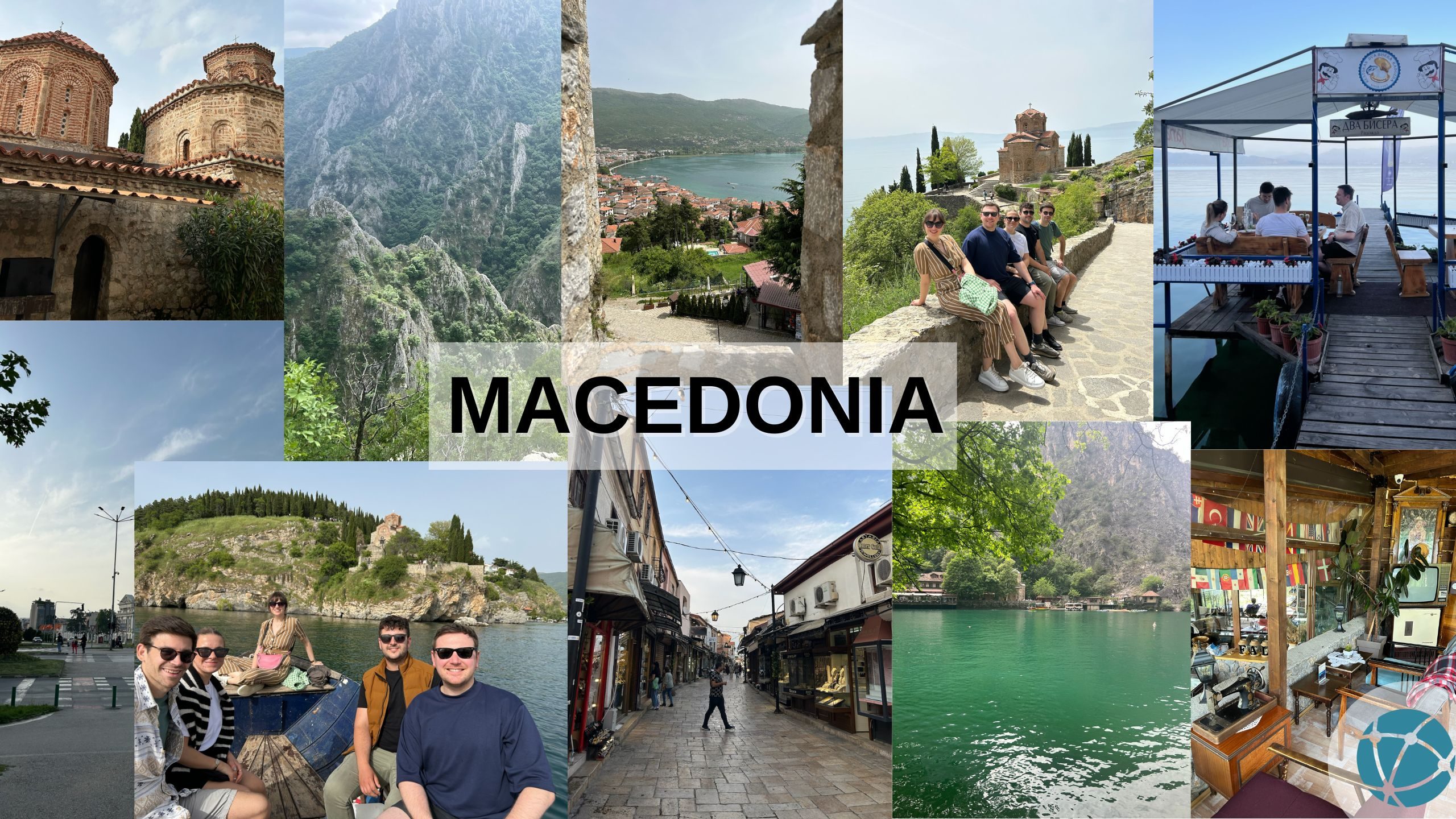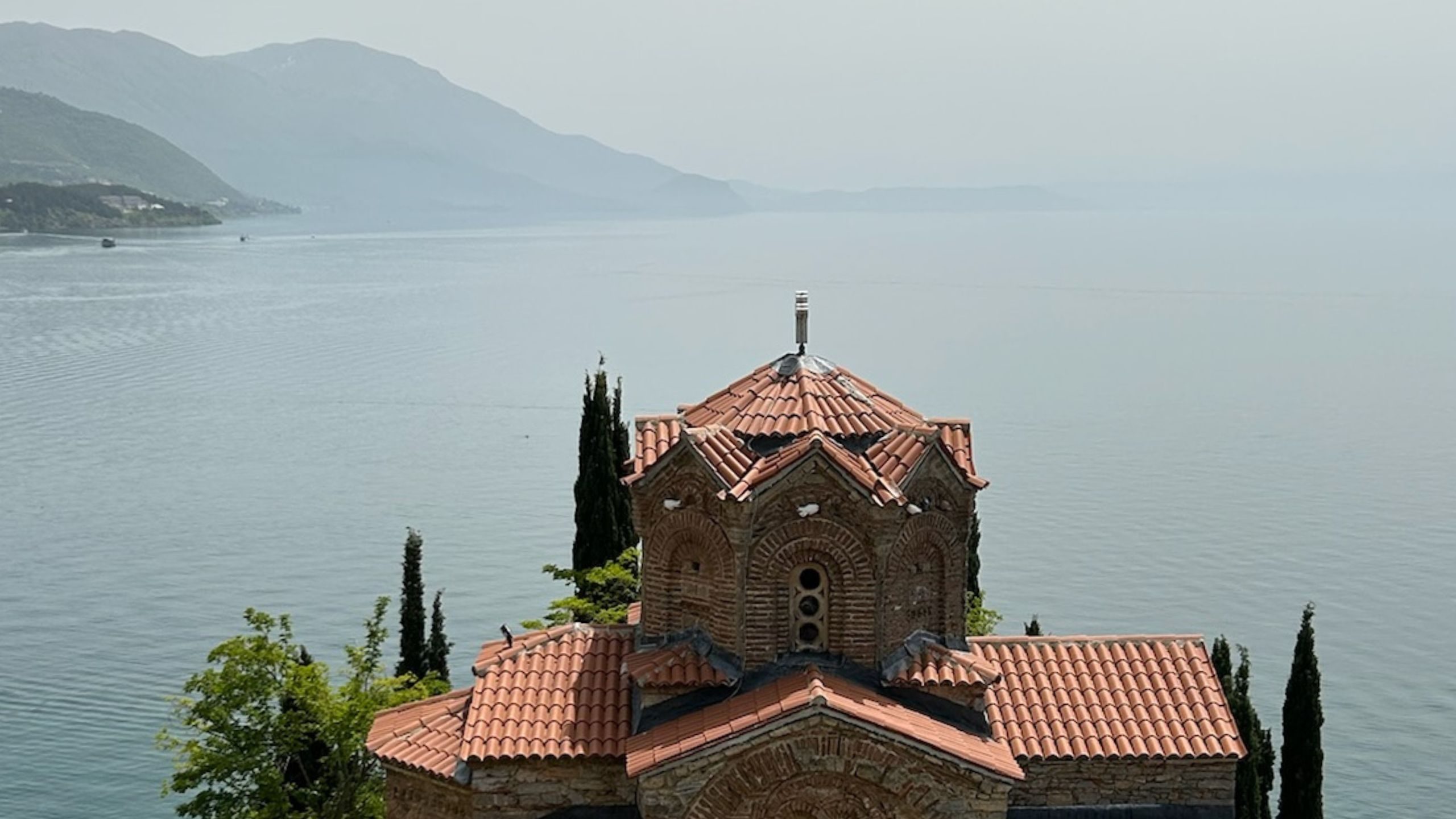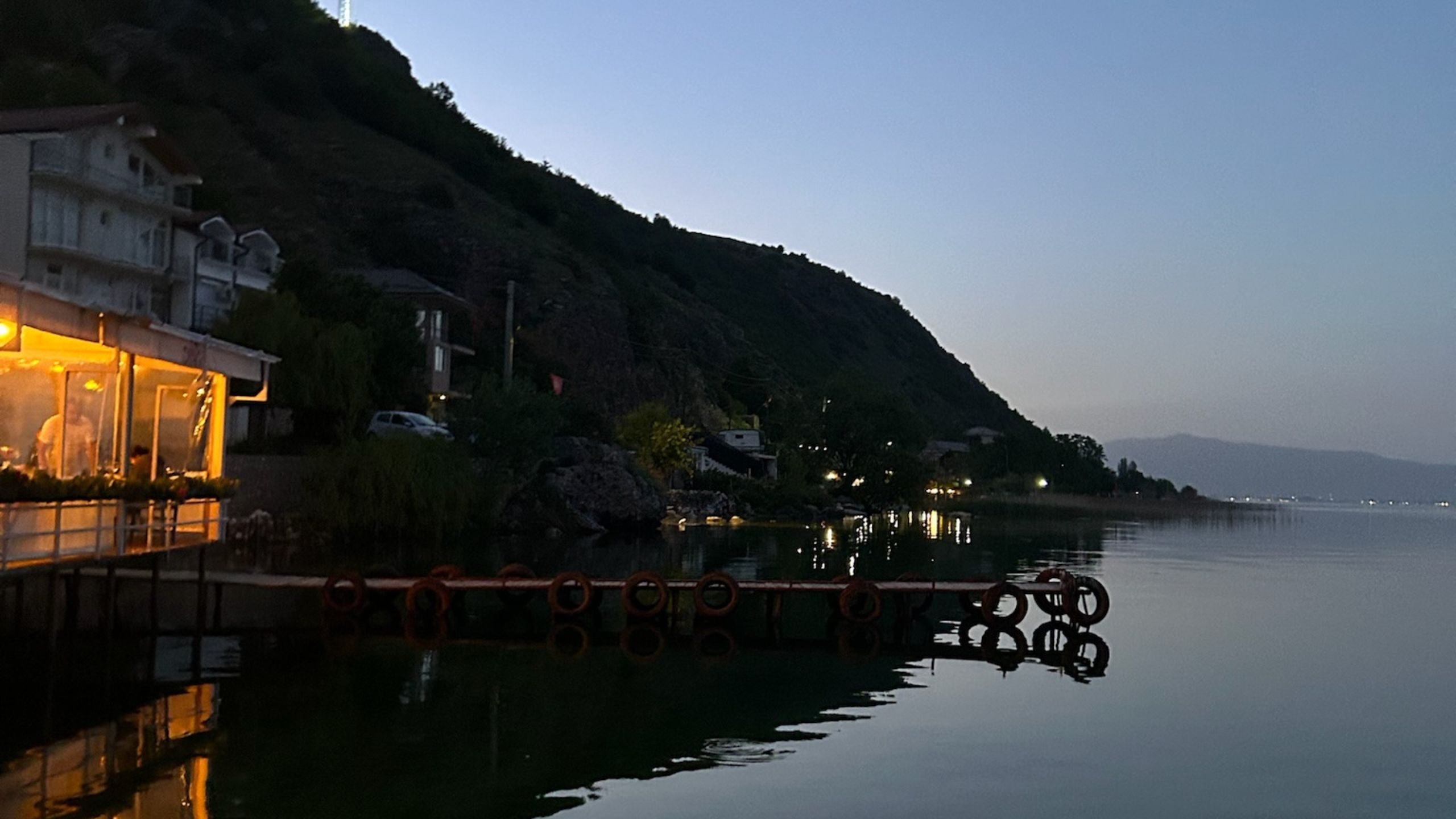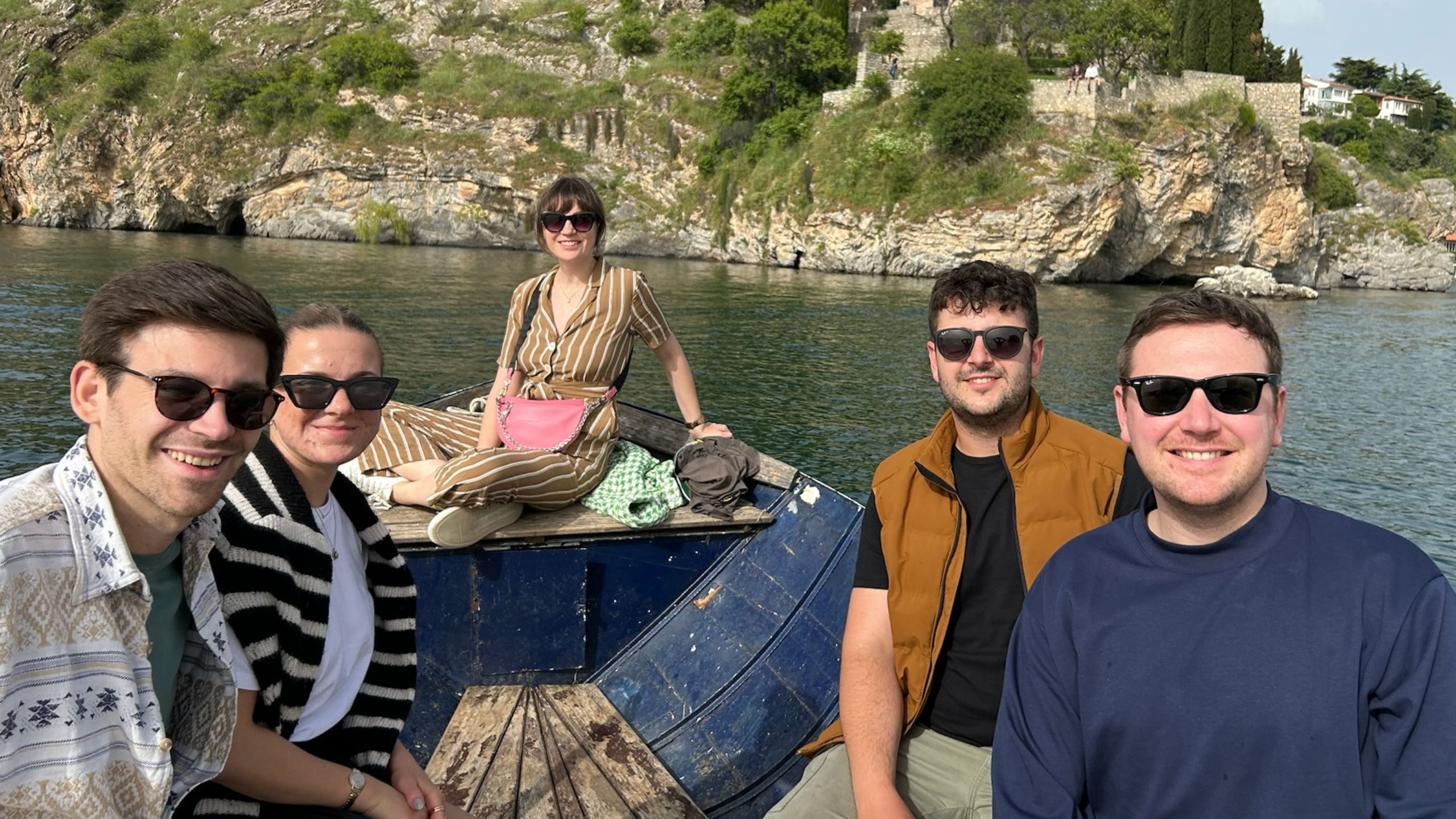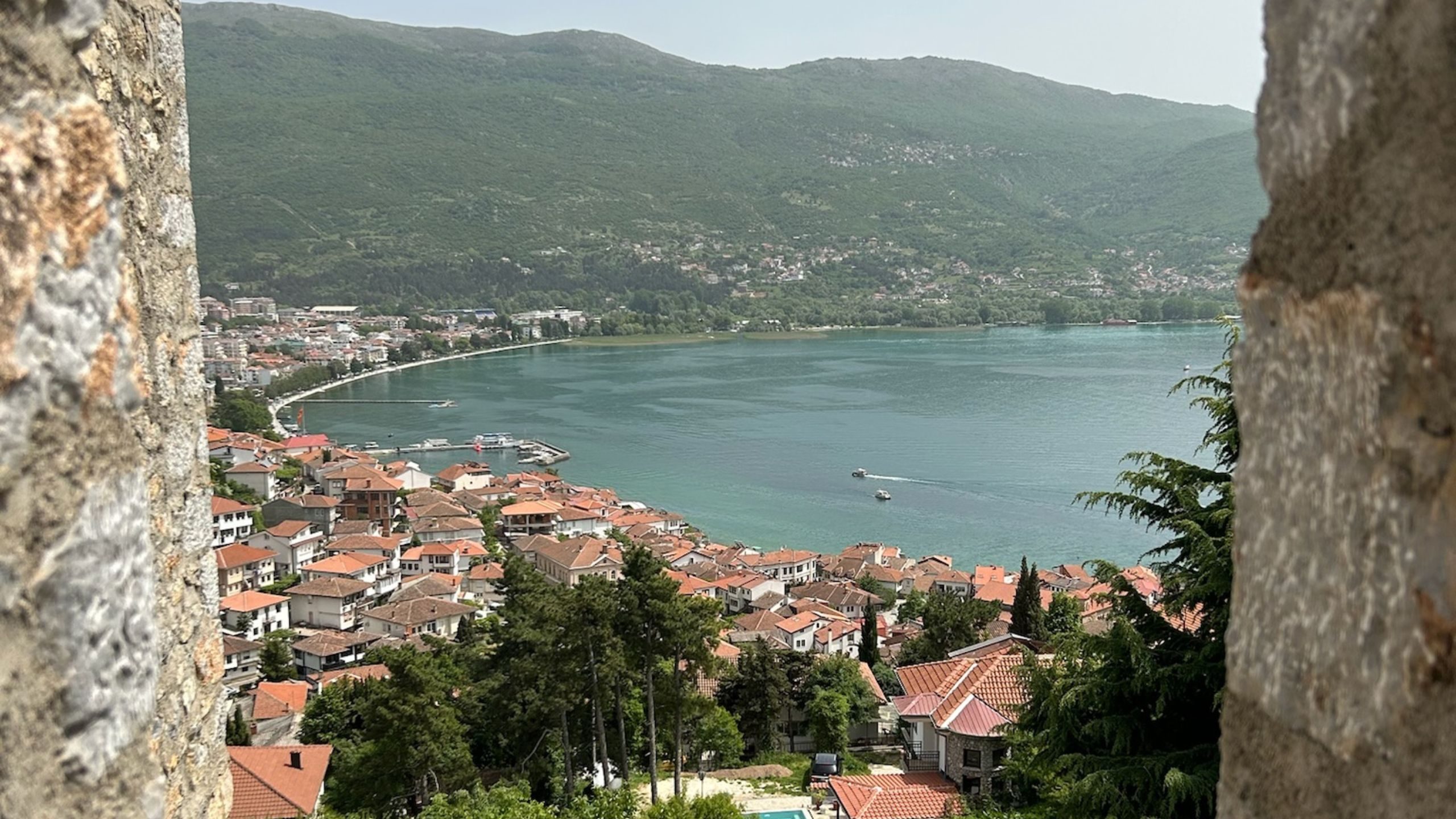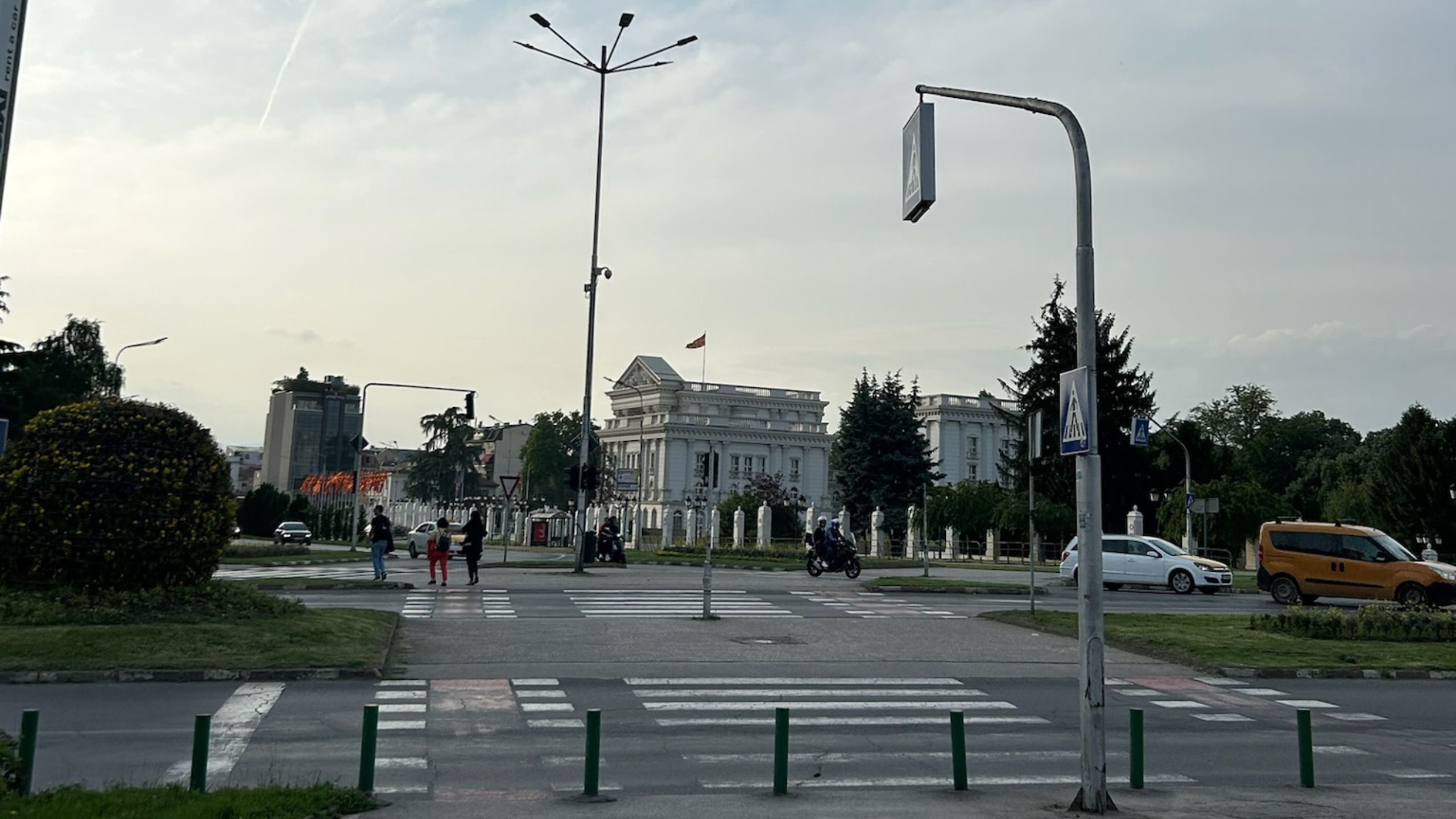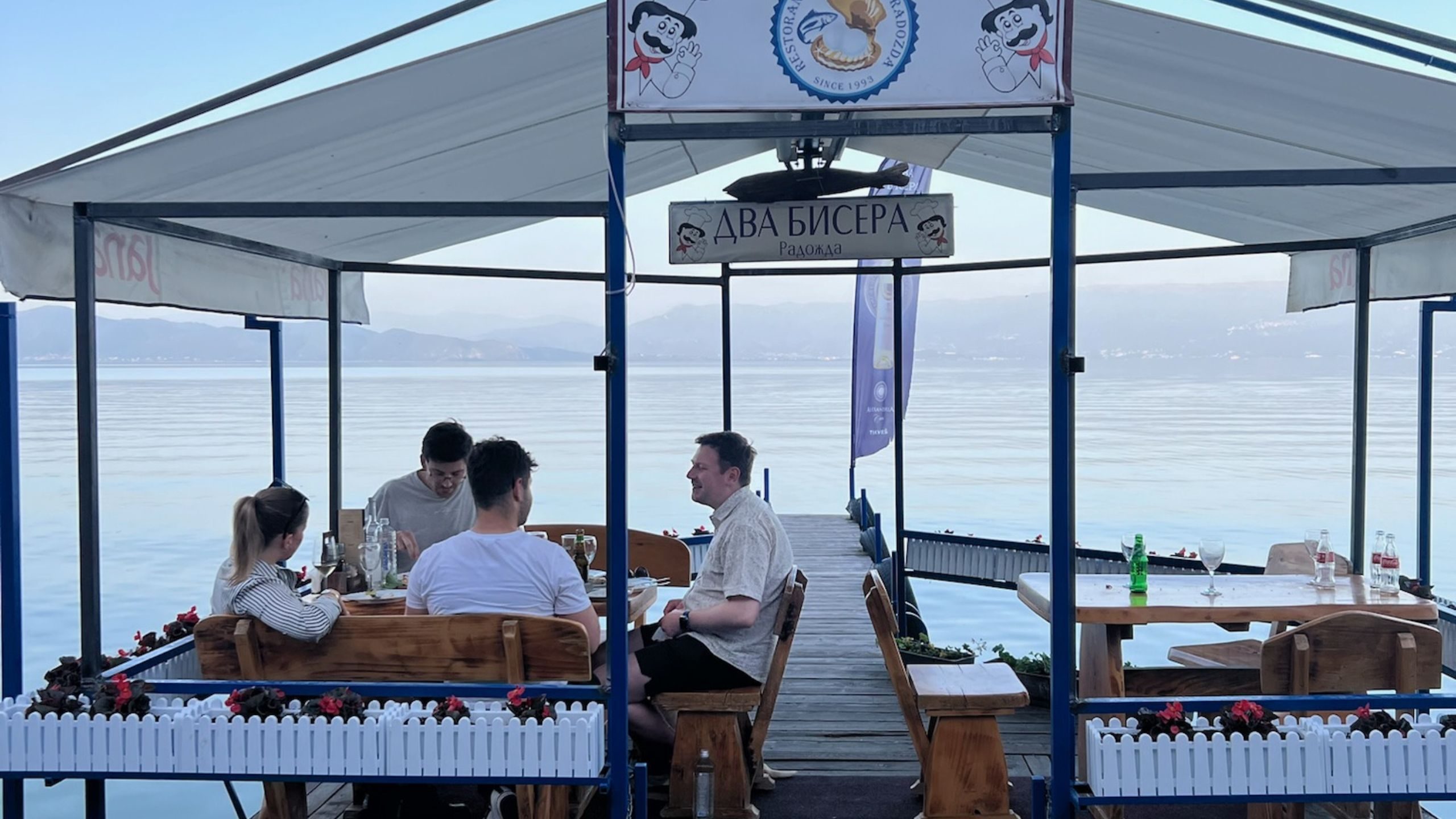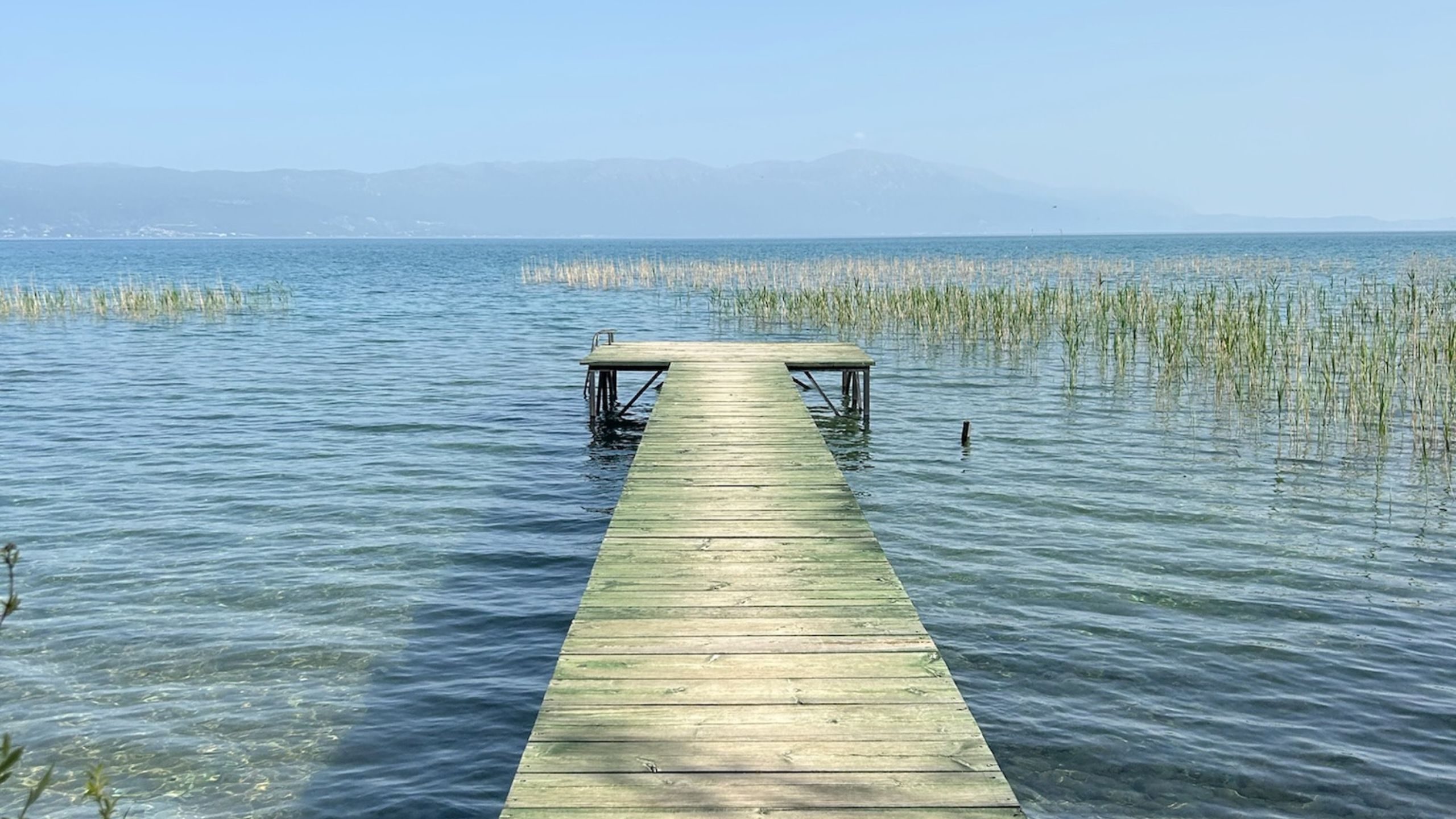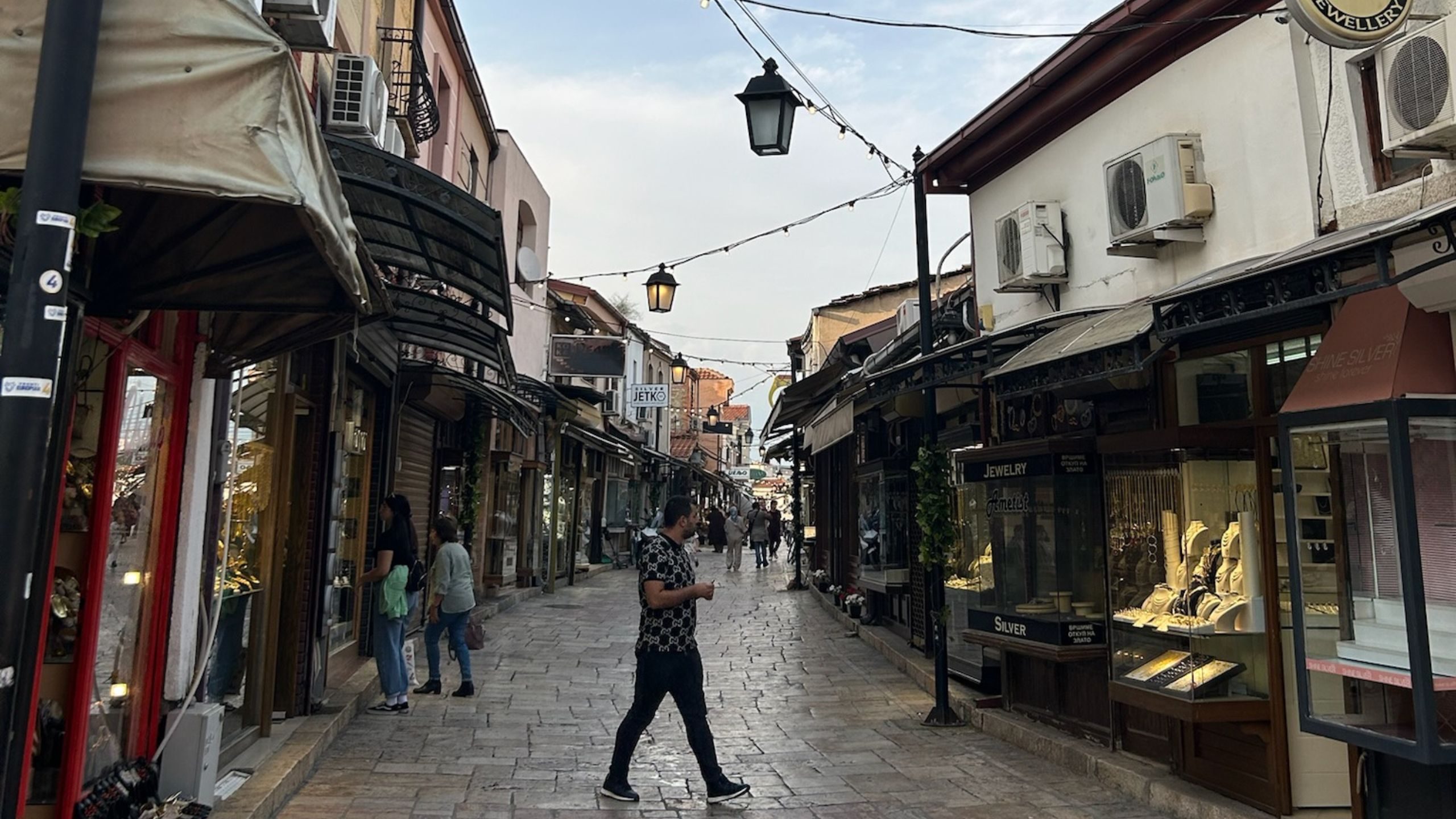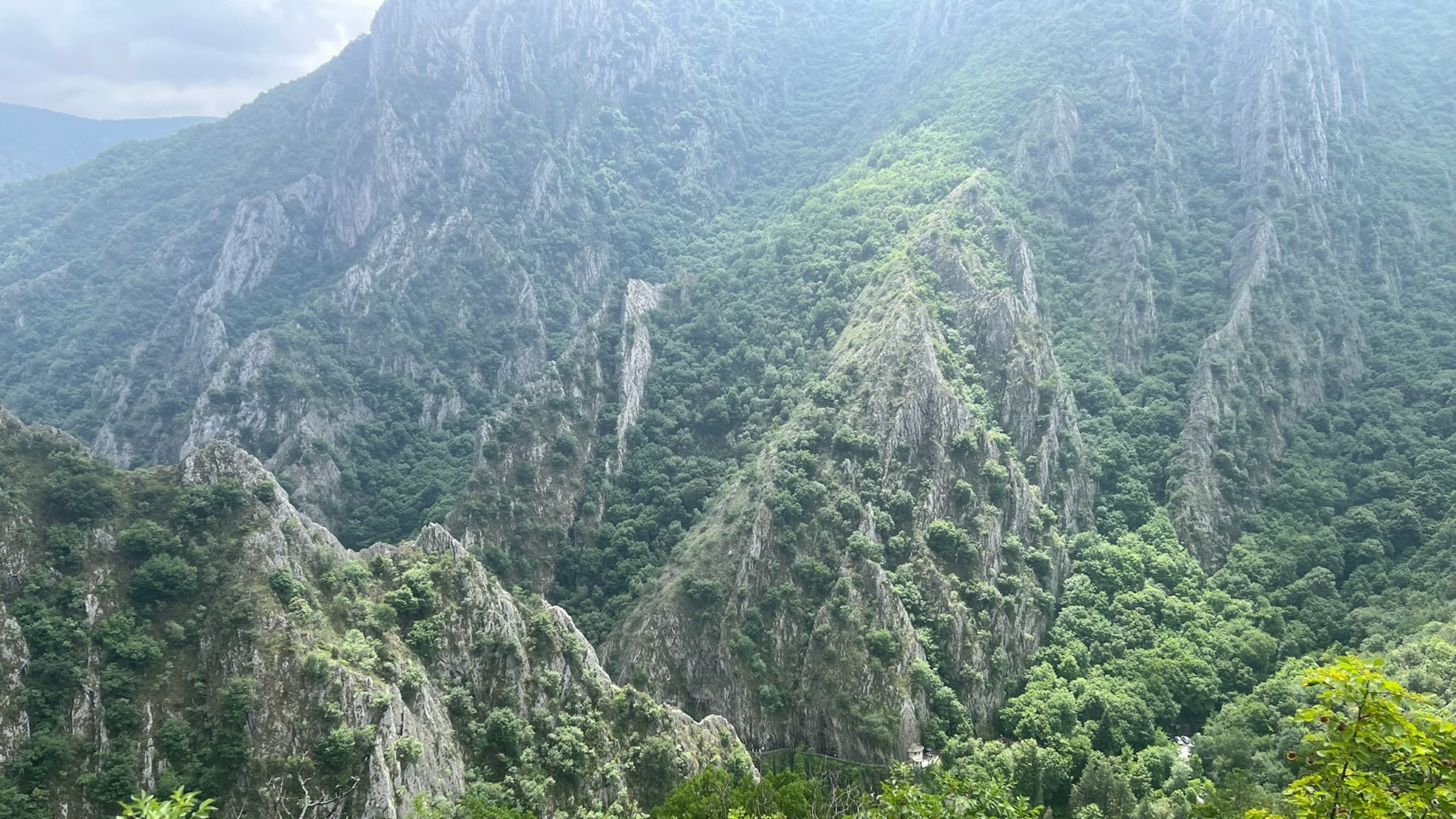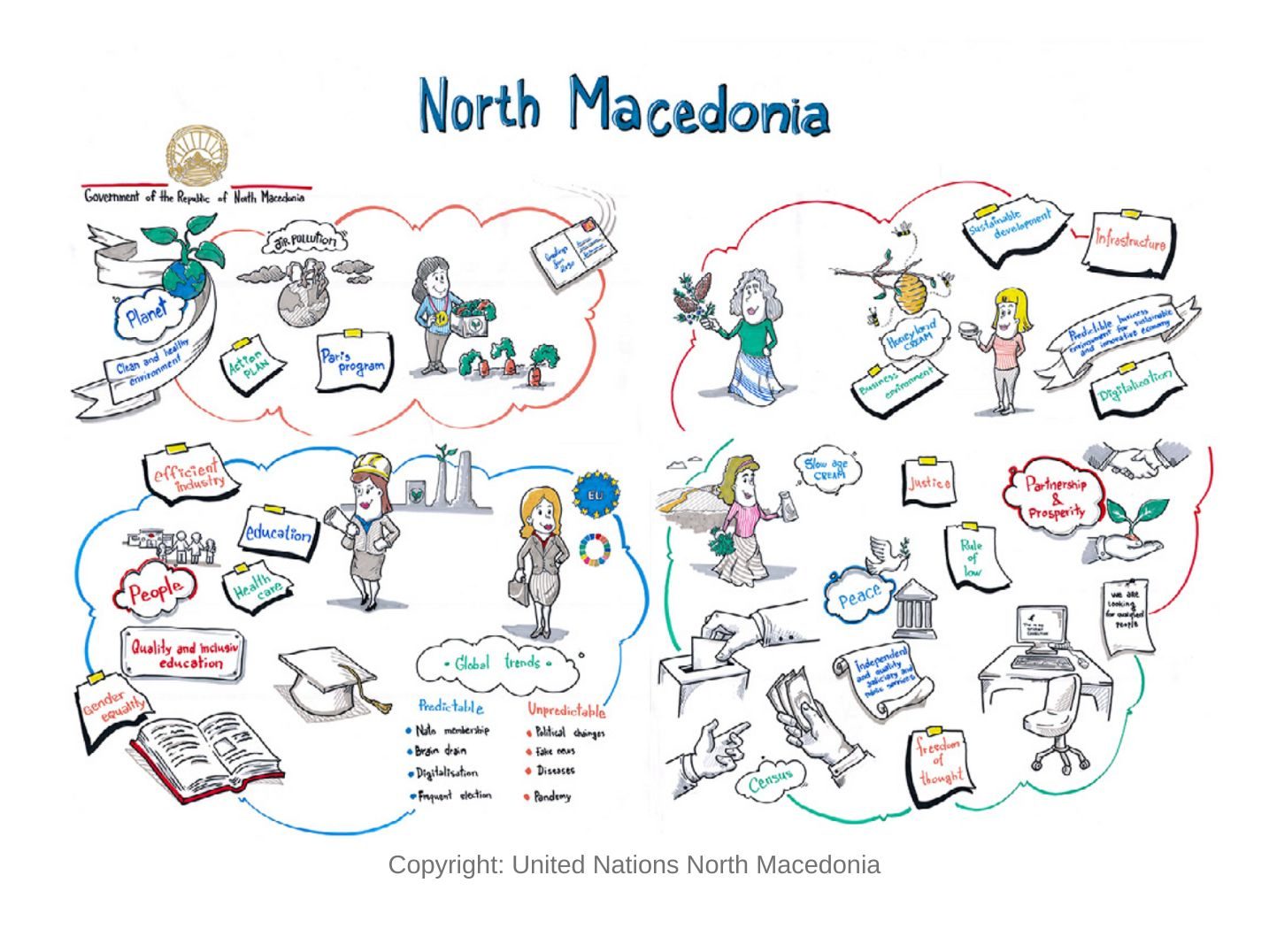MUNA+ goes Macedonia
MUNA+ e.V. + has recently been on a trip together to the beautiful country of Macedonia. Since one MUNA+ member Martin Nikolov is from Macedonia, the decision where to spend some time together and work on our newest project was quickly made. Intercultural exchange, beautiful nature and first-hand insights in the country, its people and cuisine were mixed with some productive sessions at lake Ohrid.
So here are a few facts about the country, which were also new to most of us:
Macedonia, officially the Republic of North Macedonia, is a landlocked country located in the Balkan Peninsula in Southeast Europe. It gained independence from Yugoslavia in 1991 and has since been working towards integration with Euro-Atlantic structures, joining NATO in 2020 and pursuing European Union membership.
North Macedonia is a parliamentary representative democratic republic with a multi-party system.
The political scene in North Macedonia is characterized by a complex interplay of ethnic dynamics and coalition politics. The two major parties, the Social Democratic Union of Macedonia (SDSM) and the Internal Macedonian Revolutionary Organization – Democratic Party for Macedonian National Unity (VMRO-DPMNE), have traditionally represented the interests of the ethnic Macedonian majority. However, the inclusion of ethnic Albanian parties, such as the Democratic Union for Integration (DUI), in governing coalitions has been a necessity due to the country’s multi-ethnic composition.
The implementation of the Ohrid Framework Agreement in 2001, aimed at resolving ethnic tensions, has been a significant factor shaping the political landscape. The agreement granted greater rights and representation to the ethnic Albanian community, leading to power-sharing arrangements and the inclusion of Albanian parties in government coalitions.
North Macedonia is a culturally diverse nation, with a rich tapestry of ethnic groups, languages, and traditions. The largest ethnic groups are Macedonians (58%) and Albanians (25%), followed by Turks, Roma, Serbs, and others. This diversity is reflected in the country’s cultural heritage, including its architecture, cuisine, music, and festivals.
The coexistence of different cultures has been both a source of tension and a testament to the country’s commitment to multiculturalism. Efforts have been made to promote cultural understanding and tolerance, particularly through educational initiatives and the recognition of minority rights.
ILIRIA International Review, Republic of Türkiye Ministry of Foreign Affairs, European Commission, BTI Transformation Index
After having a look at the basic facts, here are some more about Lake Ohrid, where we’ve spent most of the time:
Lake Ohrid, one of the oldest and deepest lakes in Europe, is a unique natural and cultural heritage site recognized by UNESCO. It is renowned for its exceptional biodiversity, with over 200 endemic species. In 2020, the Lake Ohrid Watershed Management Plan was approved by North Macedonia and Albania, aiming to enable sustainable management of the lake’s natural resources and address threats such as urban development, pollution, and overfishing.
The plan includes over 100 measures designed to prevent further deterioration of water resources, improve ecosystem quality, and mitigate floods and droughts in the area. Efforts have also been made to extend the UNESCO World Heritage site to include the Albanian side of the lake.
Global Water Partnership, Deutsche Gesellschaft für Internationale Zusammenarbeit, European External Action Service, Biogeosciences
And of course, a link to the Sustainable Development Goals and what Macedonia is doing to contribute to sustainable development.
According to the report, the National Council for Sustainable Development in North Macedonia has identified the following five Sustainable Development Goals (SDGs) as priority goals for the period 2018-2020:
· SDG 1 – No Poverty
· SDG 4 – Quality Education
· SDG 8 – Decent Work and Economic Growth
· SDG 13 – Climate Action
· SDG 16 – Peace, Justice and Strong Institutions
These five SDGs were prioritized based on the priority activities and measures defined in the Government’s Programme for 2017-2020 and the five pillars of the United Nations Development Assistance Framework (UNDAF) for 2016-2020.
The report highlights that North Macedonia is fully committed to the 2030 Agenda for Sustainable Development and has aligned its national development priorities with the SDGs. The country’s existing policy framework addresses key aspects of sustainable development, with an overall alignment of 83% with the SDG targets according to a Rapid Integrated Assessment.
Therefore, while North Macedonia is working towards achieving all 17 SDGs, the five goals mentioned above (SDG 1, 4, 8, 13, and 16) have been given particular priority and emphasis in the country’s sustainable development efforts during the 2018-2020 period.
The report provides an overview of North Macedonia’s progress towards achieving the Sustainable Development Goals (SDGs) and highlights the country’s efforts, challenges, and strategies across various areas.
